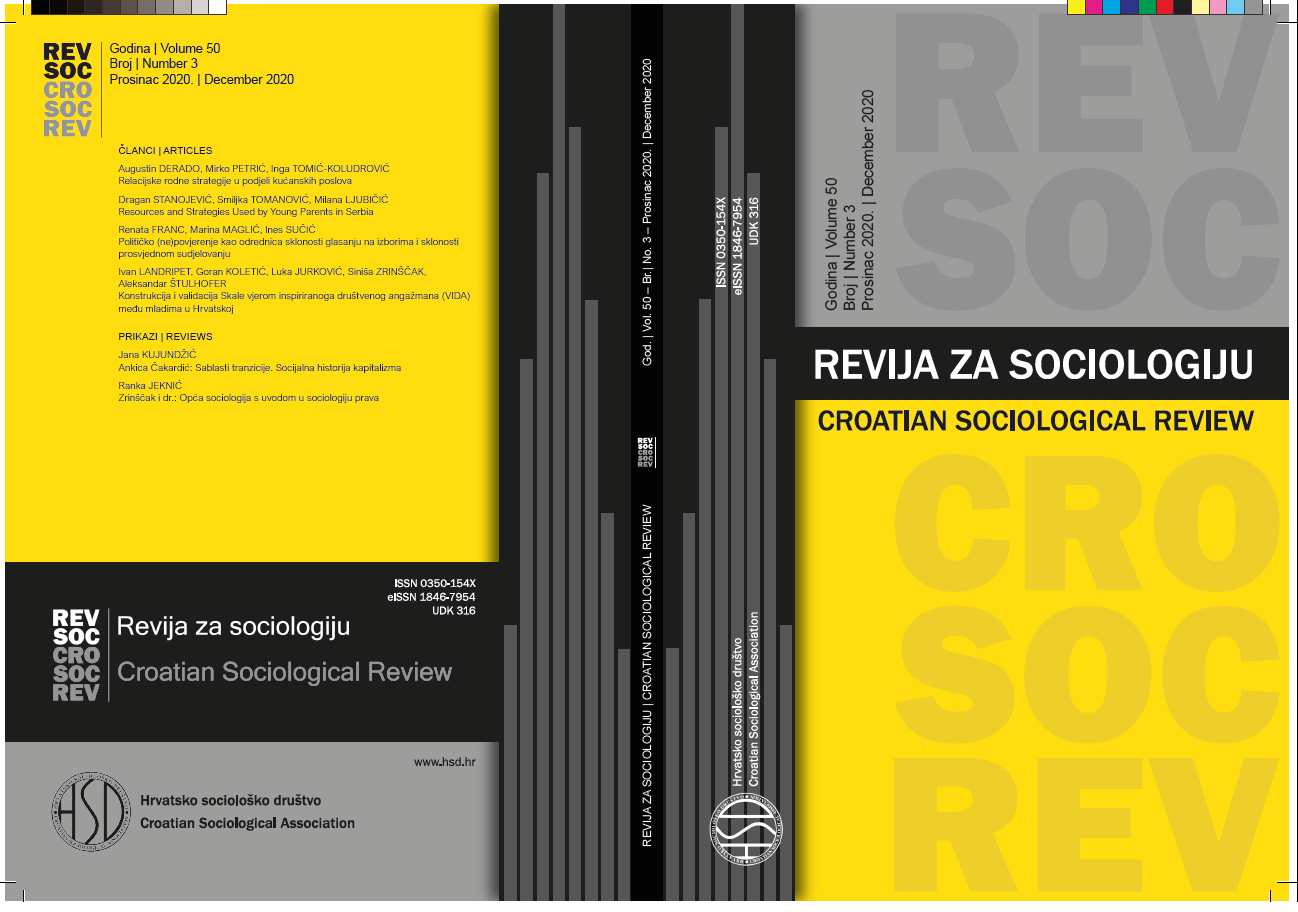Relacijske rodne strategije u podjeli kućanskih poslova
Relational Gender Strategies in the Division of Household
Labour
Author(s): Augustin Derado, Mirko Petrić, Inga Tomić-KoludrovićSubject(s): Gender Studies, Labor relations, Family and social welfare, Sociology of Culture
Published by: Hrvatsko sociološko društvo
Keywords: division of household labour; relational gender analysis; qualitative research; Bourdieu; gender strategies;
Summary/Abstract: The article presents the results of a qualitative inquiry into the gender division of household labour in Croatia, in the wider context of the total work practices of a household (i.e., total paid and unpaid work contributing to the realisation of its goals). The data were gathered through 92 semi-structured interviews (34 with men, 43 with women, and 15 with partners), carried out in all Croatian regions, with a high degree of variation in socio-demographic characteristics. Relational gender analysis was applied, the theoretical framework of which rested primarily on Bourdieu’s praxeological approach to the concept of strategy, as well as on Pahl’s conceptualisation of total work of the household and Hochschild’s analysis of the gender dimension of strategies. Categorisation processes included three levels of coding (referential, open, and selective) while linking processes included the construction of analytical profiles and tables. The individual gender strategies identified relating to the performance of household labour are the strategies of unquestionability, resistance to change, cooperation, and proactive egalitarianism (for men), and the strategies of unquestionability, pressure, acceptance and proactive egalitarianism (for women). Bringing into relation the aforementioned male and female individual gender strategies and applying the criterion of gender balance resulted in the following typology of the household strategies related to the division of household labour: unquestionably traditional, predominantly traditional, initially egalitarian, and proactively egalitarian. The component of justification concerning the division of household labour appears partially in both male and female individual strategies. The theoretical contribution of the analysis lies with the application of Bourdieu’s praxeological approach to strategies in relational gender research.
Journal: Revija za sociologiju
- Issue Year: 50/2020
- Issue No: 3
- Page Range: 321-351
- Page Count: 32
- Language: Croatian

